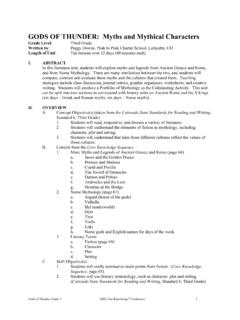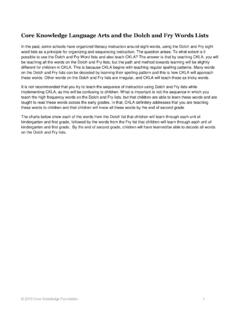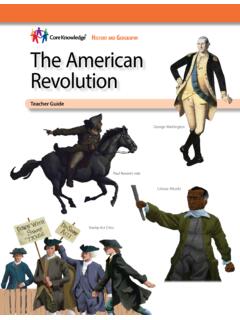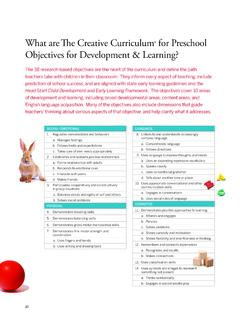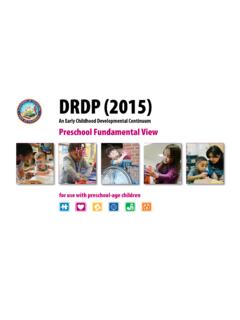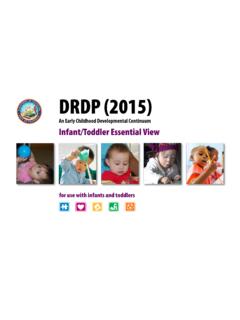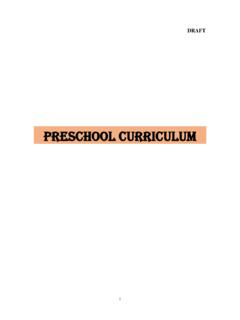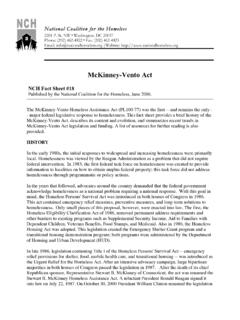Transcription of Core Knowledge Sequence
1 Core KnowledgeSequenceContent and Skill Guidelines for Grades K 8 PLEASE NOTE you are free: to Share to copy, distribute and transmit the work to Remix to adapt the workUnder the following conditions: Attribution You must attribute the work in the following manner: This work is based on an original work of the Core Knowledge Foundation made available through licensing under a Creative Commons Attribution-NonCommercial-ShareAlike Unported License. This does not in any way imply that the Core Knowledge Foundation endorses the work. Noncommercial You may not use this work for commercial purposes. Share Alike If you alter, transform, or build upon this work, you may distribute the resulting work only under the same or similar license to this the understanding that:For any use or distribution, you must make clear to others the license terms of this work.
2 The best way to do this is with a link to this web page: 2013 Core Knowledge All Rights DIRECTION AND DESIGN: Liza Greene and Holly Lanigan COVER: Liza Greene 2010 Core Knowledge FoundationISBN 978-1-890517-25-0 First printing of Core Knowledge Sequence for preschool Grade 8 Ninth printing of Core Knowledge Sequence for K 8 Prior editions 1988, 1990, 1991, 1992, 1993, 1995, 1997, 1998, 1999 Core Knowledge FoundationThird printing of Core Knowledge preschool SequencePrior editions 1997, 2000 Core Knowledge FoundationThe Core Knowledge Foundation hereby grants permission for individual reproduction of the Core Knowledge Sequence for noncommercial purposes. No part of this document may be reproduced or used in any other form or by other means graphic, electronic, mechanical, including recording, taping and information storage and retrieval systems without prior written permission and license from the Core Knowledge Foundation.
3 Requests for permission and license should be directed to: Core Knowledge Foundation 801 East High Street Charlottesville, VA 22902 telephone: (434) 977-7550 fax: (434) 977-0021 e-mail: home page: Core Knowledge is a trademark of the Core Knowledge Letter from the Founder .. i Preface What's New in the 2010 Edition? .. iiWhat Support is Available for Implementation of Core Knowledge .. v Introduction What is the Core Knowledge Sequence ? .. vi Teaching the Core Knowledge Sequence .. viThe Sequence as the Core of the Curriculum .. viThe Consensus Behind the Core Knowledge Sequence .. vii Equal Access to Knowledge Promotes Excellence and Fairness .. viii Multiculturalism in the Sequence .. viii The Arts in the Curriculum .. viii Core Knowledge Schools.
4 Ix Resources for Teaching the Core Knowledge Sequence .. ix preschool Please flip this publication over to view the preschool Sequence . Kindergarten Overview of Topics .. 2 Language Arts .. 3 World History and Geography .. 12 American History and Geography .. 13 Visual Arts .. 15 Music .. 16 Mathematics .. 18 Science .. 20 Grade 1 Overview of Topics .. 24 Language Arts .. 25 World History and Geography .. 35 American History and Geography .. 37 Visual Arts .. 39 Music .. 41 Mathematics .. 43 Science ..45 Grade 2 Overview of Topics .. 50 Language Arts .. 51 World History and Geography .. 61 American History and Geography .. 63 Visual Arts .. 66 Music .. 68 Mathematics .. 70 Science .. 73 Grade 3 Overview of Topics .. 78 Language Arts .. 79 World History and Geography .. 83 American History and Geography .. 85 Visual Arts.
5 88 Music .. 90 Mathematics .. 92 Science .. 95 Grade 4 Overview of Topics ..100 Language Arts ..101 ContentsWorld History and Geography ..105 American History and Geography ..109 Visual Arts ..112 Music ..114 Mathematics ..116 Science ..119 Grade 5 Overview of Topics .. 124 Language Arts .. 125 World History and Geography .. 129 American History and Geography .. 133 Visual Arts .. 136 Music .. 138 Mathematics .. 140 Science .. 143 Grade 6 Overview of Topics .. 148 English .. 149 World History and Geography .. 153 American History and Geography .. 158 Visual Arts .. 160 Music .. 162 Mathematics .. 164 Science .. 168 Grade 7 Overview of Topics .. 174 English .. 175 History and Geography .. 180 Visual Arts .. 186 Music .. 188 Mathematics .. 190 Science .. 193 Grade 8 Overview of Topics .. 198 English .. 199 History and Geography.
6 204 Visual Arts .. 210 Music .. 212 Mathematics .. 214 Science .. 216 Appendix AWhy Listening and Learning are Critical to Reading 223 Appendix BUsing Trade Books to Achieve College and Career Readiness: The Principles of 227 Appendix CDomains and Core Content Objectives for the Core Knowledge Language Arts Program, K 240 Appendix DCore Knowledge Grade-by-Grade Resource 266 Core Knowledge at a 268 The Core Knowledge SequenceA Letter from the Founder of the Core KnowledgeFoundation, E. D. Hirsch, , 2010 Dear Friend of Core Knowledge , The Board of Trustees of the Core Knowledge Foundation has long desired to make the Core Knowledge Sequence freely available for all non-commercial use. Frankly, what has held us back is simple economics. Even nonprofits need to pay bills, and the Sequence , our guide to the specific Knowledge that forms the foundation of a sound, well-rounded education, has long been our biggest seller.
7 Income from its sale allows us to break even so we can continue to advocate for a solid elementar y curriculum and support a growing network of Core Knowledge Core Knowledge is still worried about breaking even, times have changed. Today, more people recognize that a core curriculum is critical to significant educational improvement. Growing acceptance of our fundamental proposition is now being evidenced in the promising decision of several states to get behind a common core of K 12 standards in language arts and math. It would be contrar y to our basic mission if we did not tr y to help this promising new effort prosper and succeed. From its founding in 1986, Core Knowledge has worked to help teachers and parents understand that all of our most important goals in education reading comprehension, language competence, and critical thinking depend on broad Knowledge , and cannot be successfully attained through language-arts instruction alone.
8 To their credit, the authors of our emerging common core state standards understand this concept. However, standards alone are not sufficient to guarantee success. The effectiveness of the new language-arts standards will depend on the implementation of coherent, cumulative, and content-specific grade-by-grade curricula infused into language arts and the other the question has become not how can we give away our most valuable publication and foundational piece of intellectual property, but how can we not?In the old sailing days you had to wait for the flood tide before setting forth, so you didn t miss the tide. That, according to Shakespeare, was true for more than sea voyages: There is a tide in the af fairs of men, Which, taken at the flood, leads on to fortune; Omitted, all the voyage of their life Is bound in shallows and in as Will Rogers put it: Even though you are on the right track, you will get run over if you just sit there.
9 For those of you who are old hands on this voyage, thank you for your support throughout the years. If you are new to Core Knowledge , welcome aboard. I have never been more optimistic about the prospect for deep, meaningful, and lasting change in our schools. Sincerely,E. D. Hirsch, Letter from the Founder iPreface to the 2010 Edition of the Core Knowledge Sequence With the prospect that many states will soon embrace a common core of K 12 standards in language arts and math, the future of the American public education system has never looked brighter than right now. We at the Core Knowledge Foundation fer vently believe that our experience over the past twenty years in championing the use of a coherent, cumulative, content-specific curriculum in schools throughout the United States can be of significant value to states and school districts nationwide looking to take the next step for ward at this historic moment.
10 The integration of common core standards in language arts and math with a coherent, cumulative, and content rich curriculum holds enormous promise. The Core Knowledge Foundation stands ready to assist states, school districts, and individual schools in taking this step and it is for that ver y reason that we have decided to disseminate the Core Knowledge Sequence as widely as possible at no offer then this updated, 2010 online version of the Core Knowledge Sequence . Our original mission Excellence and Equity for All Children and the simple, yet powerful underlying premise of Core Knowledge , that Knowledge builds on Knowledge , remain unchanged. Nearly all of our most important goals for education greater reading comprehension, the ability to think critically and solve problems, even higher test scores are a function of the depth and breadth of our Knowledge .
